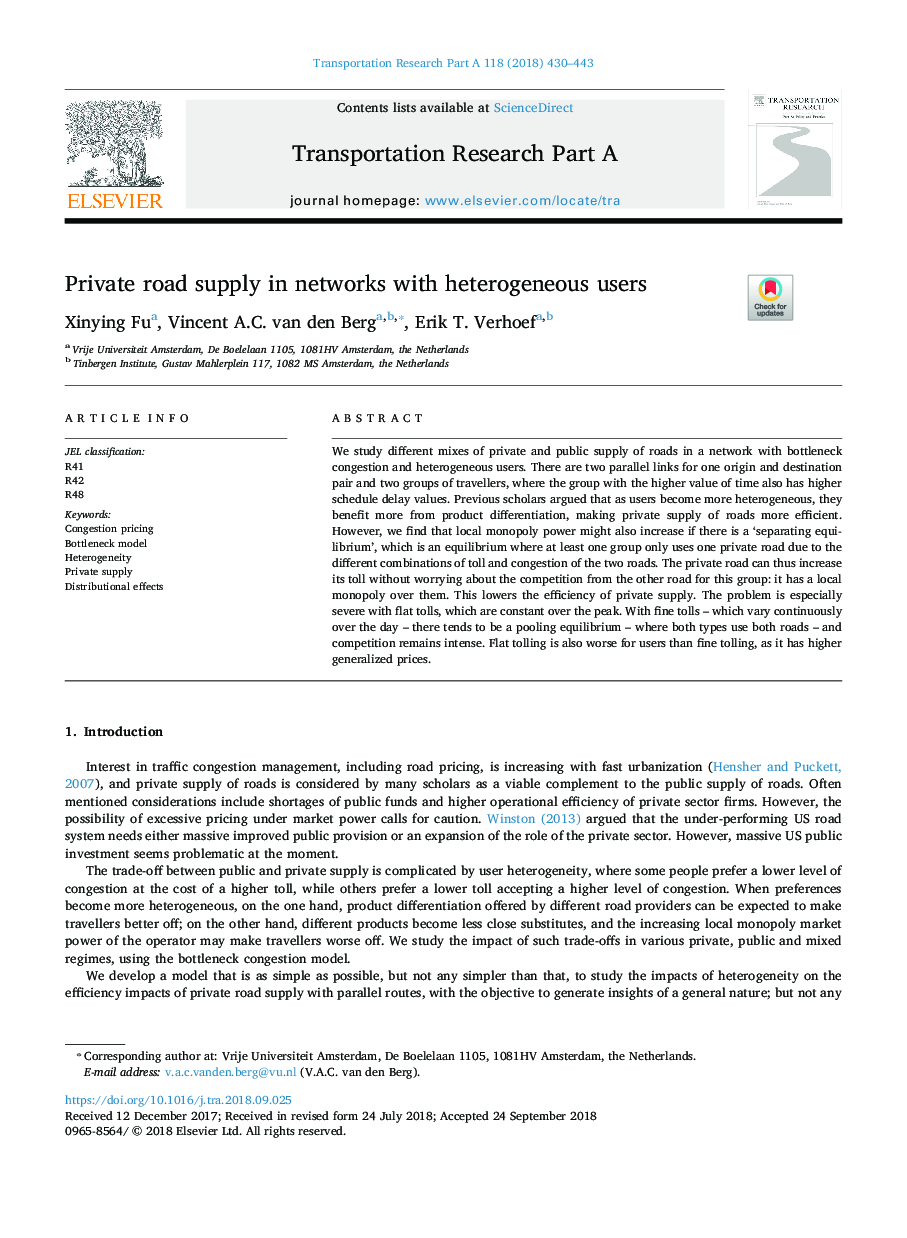| Article ID | Journal | Published Year | Pages | File Type |
|---|---|---|---|---|
| 11030176 | Transportation Research Part A: Policy and Practice | 2018 | 14 Pages |
Abstract
We study different mixes of private and public supply of roads in a network with bottleneck congestion and heterogeneous users. There are two parallel links for one origin and destination pair and two groups of travellers, where the group with the higher value of time also has higher schedule delay values. Previous scholars argued that as users become more heterogeneous, they benefit more from product differentiation, making private supply of roads more efficient. However, we find that local monopoly power might also increase if there is a 'separating equilibrium', which is an equilibrium where at least one group only uses one private road due to the different combinations of toll and congestion of the two roads. The private road can thus increase its toll without worrying about the competition from the other road for this group: it has a local monopoly over them. This lowers the efficiency of private supply. The problem is especially severe with flat tolls, which are constant over the peak. With fine tolls - which vary continuously over the day - there tends to be a pooling equilibrium - where both types use both roads - and competition remains intense. Flat tolling is also worse for users than fine tolling, as it has higher generalized prices.
Related Topics
Physical Sciences and Engineering
Engineering
Civil and Structural Engineering
Authors
Xinying Fu, Vincent A.C. van den Berg, Erik T. Verhoef,
